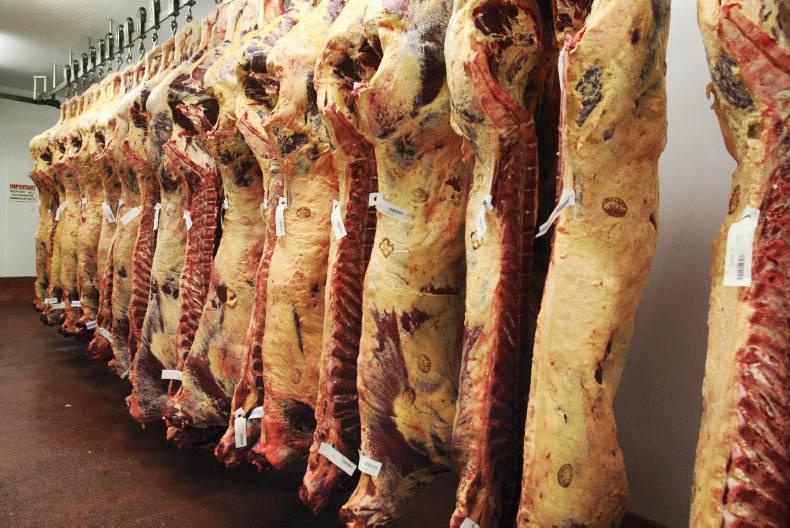Hilton Food Group, the Northern Ireland-based secondary meat processor, saw a double digit (+10%) increase in sales volumes for 2017 to just over 303,800t. This represents the 10th consecutive year Hilton has grown sales volumes since it floated on the London stock market in 2007.
Announcing its 2017 financial results, Hilton reported a 3% increase in pre-tax profits to £34.2m. Sales for the year grew by 10% to just under £1.4bn, mainly as a result of increased volumes and higher prices for beef, pork and lamb.
Weak sterling boost
The weak sterling also boosted Hilton’s competitiveness, with almost 60% of sales coming from markets outside the UK. Outside of the UK, which accounts for 42% of sales, the Netherlands (22%), Sweden (16%), Denmark (8%) and Ireland (6%) are Hilton’s largest sales markets.
Hilton saw operating profits increase just over 2% to reach £35.1m, despite profit margins narrowing slightly to 2.6%. The company has no debt on its balance sheet at present, instead finishing the financial year in a net cash position of £25.4m.
During the year, Hilton acquired Icelandic Seachill for £81m, or an eight times multiple of earnings. Icelandic Seachill is a UK-based seafood company that is contracted to supply salmon and whitefish to Tesco.
Dependent
Hilton is dependent on a very small number of customers for the vast majority of its sales. Just four retail partners based in the UK and continental Europe (Tesco, Ahold, Coop Denmark and ICA Gruppen) account for 96% of the company’s annual sales. Tesco alone accounted for close to £650m in sales last year, or just under half the entire business.
Based on the strong financial performance during 2017, Hilton has increased its full-year dividend for 2017 by 11% to 19p per share.
Read More
Hilton Foods announces changes to Australian JV
Profits fall at Hilton’s Irish subsidiary
Hilton Food Group, the Northern Ireland-based secondary meat processor, saw a double digit (+10%) increase in sales volumes for 2017 to just over 303,800t. This represents the 10th consecutive year Hilton has grown sales volumes since it floated on the London stock market in 2007.
Announcing its 2017 financial results, Hilton reported a 3% increase in pre-tax profits to £34.2m. Sales for the year grew by 10% to just under £1.4bn, mainly as a result of increased volumes and higher prices for beef, pork and lamb.
Weak sterling boost
The weak sterling also boosted Hilton’s competitiveness, with almost 60% of sales coming from markets outside the UK. Outside of the UK, which accounts for 42% of sales, the Netherlands (22%), Sweden (16%), Denmark (8%) and Ireland (6%) are Hilton’s largest sales markets.
Hilton saw operating profits increase just over 2% to reach £35.1m, despite profit margins narrowing slightly to 2.6%. The company has no debt on its balance sheet at present, instead finishing the financial year in a net cash position of £25.4m.
During the year, Hilton acquired Icelandic Seachill for £81m, or an eight times multiple of earnings. Icelandic Seachill is a UK-based seafood company that is contracted to supply salmon and whitefish to Tesco.
Dependent
Hilton is dependent on a very small number of customers for the vast majority of its sales. Just four retail partners based in the UK and continental Europe (Tesco, Ahold, Coop Denmark and ICA Gruppen) account for 96% of the company’s annual sales. Tesco alone accounted for close to £650m in sales last year, or just under half the entire business.
Based on the strong financial performance during 2017, Hilton has increased its full-year dividend for 2017 by 11% to 19p per share.
Read More
Hilton Foods announces changes to Australian JV
Profits fall at Hilton’s Irish subsidiary






 This is a subscriber-only article
This is a subscriber-only article










SHARING OPTIONS: